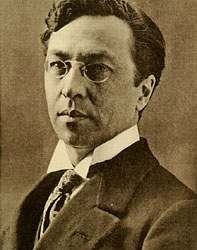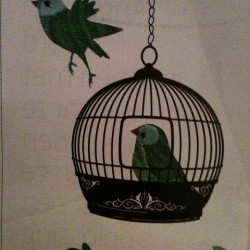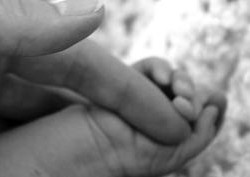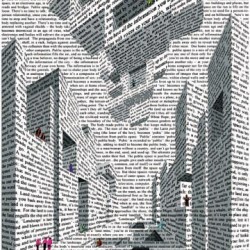- HOME
- ABOUT ME
- movies
- MEDIA
- L.Onerva
- Eino Leino
- Eeva-Liisa Manner
- Erään Opon päiväkirja
- Elämänkenttäni
- Elämäni ”viiva”
- Käyttöteoriani – se miten minä ohjaan
- Kulttuuritietoinen ja kansainvälistyvä ohjaus
- Ohjauksen järjestäminen maahanmuuttajakoulutuksessa
- Ohjauksen yhteiskunnallinen viitekehys
- Ohjaukäsite
- Oma opiskeluorientaatio
- Opiskelijoiden yksilöllisyys ohjauksessa
- EETTISET KYSYMYKSET
- Psykososiaalisen kehityksen teoria
- Suhteeni erilaisuuteen ja tehtäväni opinto-ohjaajana
- Opinto-ohjauksen ja erityisopetuksen yhtäläisyyksiä ja eroja
- Kehitykseni opinto-ohjaajana
- Maahanmuuttajan uraohjaus
- Maahanmuuttajien ohjaus ja neuvonta: kuka, mitä, miten?
- Ohjauksen tulevaisuus
- Elämänkenttäni
- Mariana Marin
- Claudiu Komartin
- Mariana Codrut
- Roland Erb
- Romanian poetry
- ESSAYS
- STORIES
- CLASSIC POETRY
- CONTEMPORARY POETRY
- TRANSLATED POEMS
- READING POETRY
- CONTACT
- translated Italian-English
- translated Italian-Romanian
- translated Spanish-English
- translated Spanish-Romanian
June, 2013
Glance and flash
POSTED IN classic poetry June 22, 2013
Glance and flashThat when he (man) wished to feed
the thick white comb renounced the
pinkbird.
Now she rolls the windows wet in wooden
cloths!
Not to the distant but the crooked.
Discharged the chapel – oh! ah!
Half-rounded sheercircles press down
hard on
chessboards and! iron books!
Nuremberg wants to lie kneeling next to
the pronged ox wants to —
horrible weight of eyebrows.
Heaven, heaven, printed ribbons you can
bear –
The leg, it might well grow out of my
head
from the short-tailed horse
with
the pointed mouth.
But the redjags, the yellowheel at
the northpolac like a missile at noon!
by Wassily Kandinsky
English version by Johannes Beilharz
Is It Possible
POSTED IN classic poetry June 21, 2013
Is It Possible
Is it possible
That so high debate,
So sharp, so sore, and of such rate,
Should end so soon and was begun so late?
Is it possible?
Is it possible
So cruel intent,
So hasty heat and so soon spent,
From love to hate, and thence for to relent?
Is it possible?
Is it possible
That any may find
Within one heart so diverse mind,
To change or turn as weather and wind?
Is it possible?
Is it possible
To spy it in an eye
That turns as oft as chance on die,
The truth whereof can any try?
Is it possible?
It is possible
For to turn so oft,
To bring that lowest which was most aloft,
And to fall highest yet to light soft:
It is possible.
All is possible
Whoso list believe.
Trust therefore first, and after preve,
As men wed ladies by licence and leave.
All is possible.
by Sir Thomas Wyatt
I Know Why The Caged Bird Sings
POSTED IN classic poetry June 21, 2013
I Know Why The Caged Bird SingsThe free bird leaps
on the back of the wind
and floats downstream
till the current ends
and dips his wings
in the orange sun rays
and dares to claim the sky.But a bird that stalks
down his narrow cage
can seldom see through
his bars of rage
his wings are clipped and
his feet are tied
so he opens his throat to sing.The caged bird sings
with fearful trill
of the things unknown
but longed for still
and his tune is heard
on the distant hill
for the caged bird
sings of freedomThe free bird thinks of another breeze
an the trade winds soft through the sighing trees
and the fat worms waiting on a dawn-bright lawn
and he names the sky his own.But a caged bird stands on the grave of dreams
his shadow shouts on a nightmare scream
his wings are clipped and his feet are tied
so he opens his throat to singThe caged bird sings
with a fearful trill
of things unknown
but longed for still
and his tune is heard
on the distant hill
for the caged bird
sings of freedom.
by Maya Angelou
CHANCE MEETINGS
POSTED IN classic poetry June 21, 2013
CHANCE MEETINGSIn the mazes of loitering people, the watchful and furtive,
The shadows of tree-trunks and shadows of leaves,
In the drowse of the sunlight, among the low voices,
I suddenly face you,Your dark eyes return for a space from her who is with you,
They shine into mine with a sunlit desire,
They say an ‘I love you, what star do you live on?’
They smile and then darken,And silent, I answer ‘You too–I have known you,–I love you!–‘
And the shadows of tree-trunks and shadows of leaves
Interlace with low voices and footsteps and sunlight
To divide us forever. “by Conrad Aike
LORENZO DE’ MEDICI, 1448-1492
POSTED IN classic poetry June 21, 2013
LORENZO DE’ MEDICI
Sonetto I
I saw my Lady by a purling brook
With laughing maidens, where green branches twined;
O never since that primal, passionate look
Have I beheld her face so soft and kind.
Hence for a space my yearning was content
And my sad soul some consolation knew;
Alas, my heart remained although I went,
And constantly my pain and sorrow grew.
Early the sun sank down in western skies
And left the earth to woeful hours obscure,
Afar my sun hath also veiled her ray;
Upon the mind first bliss most heavily lies,
How short a while all mortal joys endure,
But not so soon doth memory pass away.Sonetto II
How every hope of ours is raised in vain,
How spoiled the plans we laid so fair and well,
How ignorance throughout the earth doth reign,
Death, who is mistress of us all, can tell.
In song and dance and jest some pass their days,
Some vow their talents unto gentle arts,
Some hold the world in scorn and all its ways.
Some hide the impulses that move their hearts.
Vain thoughts and wishes, cares of every kind
Greatly upon this erring earth prevail
In various presence after nature’s lore;
Fortune doth fashion with inconstant mind,
All things are transient here below and frail.
Death only standeth fast for evermore.Sonetto III
O leave, Cithera, thy beloved isle,
O leave thy gentle kingdom, come away
And rest, O goddess, by this rill awhile
That sprinkleth every tender green grass spray.
Come to this shady place, to this soft breeze
Awaking murmurous music in each tree,
To songs of mating birds, sweet-tuned to please,
O let this country thine elected be!
And, if thou seek these limpid streams one day,
O bring thy darling son along with thee,
Because as yet this earth ignores his fame;
Steal from Diana her chaste nymphs away,
Who go untrammelled now and danger-free,
Scorning the puissant virtue of Love’s name.Trionfo
Youth is sweet and well
But doth speed away!
Let who will be gay,
To-morrow, none can tell.
Bacchus and his Fair,
Contented with their fate,
Chase both time and care,
Loving soon and late;
High and low estate
With the nymphs at play;
Let who will be gay,
To-morrow, none can tell.
Laughing satyrs all
Set a hundred snares,
Lovelorn dryads fall
In them unawares:
105 Glad with wine, in pairs
They dance the hours away:
Let who will be gay,
To-morrow, none can tell.
Not unwillingly
Were these nymphs deceived:
From Love do but flee
Graceless hearts aggrieved:
Deceivers and deceived
Together wend their way.
Let who will be gay,
To-morrow, none can tell.
Fat Silenus nears
On an ass astride:
Full of wine and years,
Come and see him ride:
He lolls from side to side
But gleefully alway:
Let who will be gay,
To-morrow, none can tell.
Midas following,
Turneth all to gold:
What can treasure bring
To a heart that’s cold?
And what joy unfold
For who thirsteth, pray?
Let who will be gay,
To-morrow, none can tell.
Ears be very bold,
Count not on to-morrow:
Let both young and old,
Lads and lassies, borrow
Joy and banish sorrow.
Doleful thoughts and grey:
107 Let who will be gay,
To-morrow, none can tell.
Lads and lassies all,
Love and Bacchus Hail!
Dance and song befall!
Pain and sadness fail!
Tender hearts prevail,
Happen then what may!
Let who will be gay,
To-morrow, none can tell.
Youth is sweet and well
But doth speed away.Canzone a ballo
Let him who is no lover
Go hence and seek another
Floor on which to dance,
He merits not good chance!
Be there one who knows not Love,
Let him hasten from this place,
For that heart is poor in grace
Which fond ardours doth not prove.
Be there one whose fires burn low,
Let him breathe on them, and so
They blaze again, he need not go!
Love presideth o’er this feast,
Those who serve him gather round.
Be there one by envy bound,
Take he leave, for thus at least
He will go and not be chased!
Only those whom Love hath graced
In so sweet a bower are placed.
Be there one who is ashamed
Of loving, let her ponder fair
109 And she will soon become aware
To love is to be nobly famed;
For love all homage doth deserve;
Ingratitude doth shame reserve.
Be there one perchance so vile
As to flee away for fright,
Let her understand aright,
No such coward fancies wile
In gentle hearts! Nature doth bring
Us beauty; foolish ’twere to fling.
Away the roses of the spring!LORENZO DE’ MEDICI
Sonetto IVidi madonna sopra un fresco rio
tra verdi frondi e liete donne starsi;
tal che dalla prima ora in qua che io arsi
mai vidi il viso suo più bello e pio.
Questo contentò in parte il mio desio,
e all’ alma diè cagion di consolarsi;
ma poi, partendo, il cor vidi restarsi;
crebbon vie più i pensier e ’l dolor mio.
Chè già il sole inchinava all’ occidente,
e lasciava la terra ombrosa e oscura;
onde il mio sole l’ ascose in altra parte.
Fe’ il primo ben più trista assai la mente:
ah quanto poco al mondo ogni ben dura!
ma il rimembrar si tosto non si parte.Sonetto II
Quanto sia vana ogni speranza nostra,
quanto fallace ciaschedun disegno,
quanto sia il mondo d’ ignoranza pregno
la meastra del tutto, morte, il mostra.
Altri si vive in canti e ’n balli e ’n giostra;
altri a cosa gentil muove lo ingegno;
altri il mondo ha e le sue cose a sdegno;
altri quel che dentro ha, fuor non dimostra.
Vane cure e pensier, diverse sorte
per la diversità che dà natura,
si vede ciascun tempo al mondo errante:
ogni cosa è fugace e poco dura;
tanto fortuna al mondo è mal costante:
sola sta ferma, e sempre dura, morte.Sonetto III
Lascia l’ isola tua tanto diletta,
lascia il tuo regno delicato e bello,
Ciprigna dea, e vien sopra il ruscello
che bagna la minuta e verde erbetta.
Viene a quest’ ombra ed alla dolce auretta
che fa mormoreggiar ogni arbuscello,
a’ canti dolci d’ amoroso augello;
questa da te per patria sia eletta.
E se tu vien tra quest chiare linfe,
sia teco il tuo amato e caro figlio;
chè qui non si conosce il suo valore.
Togli a Diana le sue caste ninfe,
che sciolte or vanno e senz’ alcun periglio,
poco pressando la virtù d’ Amore.Trionfo
Quant’ é bella giovinezza
che si fugge tuttavia!
chi vuol esser lieto, sia:
di doman non c’ è certezza.
Quest’ è Bacco e Arianna,
belli, e l’ un dell’ altro ardenti;
perchè ’l tempo fugge e ’nganna,
sempre insieme stan contenti.
Queste ninfe e altre genti
sono allegre tuttavia:
chi vuol esser lieto, sia:
di doman non c’ è certezza.
Questi lieti satiretti
delle ninfe innamorati,
per caverne e per boschetti
han lor posto cento aguati:
104 or, da Bacco riscaldati,
ballan, saltan tuttavia;
chi vuol esser lieto, sia:
di doman non c’ è certezza.
Queste ninfe hanno ancor caro
da loro essere ingannate:
non puon far a Amor riparo
se non genti rozze e ’ngrate:
ora insieme mescolate
fanno festa tuttavia:
chi vuol esser lieto, sia:
di doman non c’ è certezza.
Questa soma, che vien dreto
sopra l’ asino, è Sileno:
cosi vecchio è ebbro e lieto,
già di carne e d’ anni pieno:
se no può star ritto, almeno
ride e gode tuttavia:
chi vuol esser lieto, sia:
di doman non c’ è certezza.
Mida vien dopo costoro:
ciò che tocca, oro diventa:
e che giova aver tesoro,
poichè l’ uom non si contenta?
che dolcezza vuoi che senta
chi ha sete tuttavia?
chi vuol esser lieto, sia:
di doman non c’ è certezza.
Ciascun apra ben gli orecchi,
di doman nessun si paschi;
oggi siam, giovani e vecchi,
lieti ognun, femmine e maschi;
ogni tristo pensier caschi;
facciam festa tutavia:
106 chi vuol esser lieto, sia:
di doman non c’ è certezza.
Donne e giovanetti amanti,
viva Bacco e viva Amore!
ciascun suoni, balli e canti!
arda di dolcezza il core!
non fatica, non dolore!
quel c’ ha esser convien sia;
chi vuol esser lieto, sia:
di doman non c’ è certezza.
Quant’ è bella giovinezza
che si fugge tuttavia.Canzone a ballo
Chi non è innamorato
esca di questo ballo,
che saria fallo a stare in sì bel lato.
Se alcuno è qui che non conosca amore,
parta di questo loco;
perch’ esser non potria mai gentil core
chi non sente quel foco;
se alcun ne sente poco,
sì le sue fiamme accenda
che ognun lo intenda, e non sarà scacciato.
Amore in mezzo a questo ballo stia,
e chi gli è servo intorno.
E se alcuno ha sospetto o gelosia,
non faccia qui soggiorno;
se non, farebbe storno.
Ognun ci s’ innamori,
o esca fuor del loco tanto ornato.
Se alcuna per vergogna si ritiene
di non s’ innamorare,
vergognerassi, s’ ella pensa bene
108 più tosto a non lo fare;
non è vergogna amara
chi di servire agogna;
saria vergogna a chi gli fusse ingrato.
Se alcuna ce ne fussi tanto vile,
che lassi per paura;
pensi bene, che un core alto e gentile
queste cose non cura:
non ha dato natura
tanta bellezza a voi
acciò che poi sia il tempo mal usato.by Lorenzo de Medici
Whatiwanabe
POSTED IN contemporary poetry June 21, 2013
WhatiwanabeIf I were a poet
I’d teach the world to see
All of the verses
That dangle from a treeI’d snatch a cloud from the sky
And a fish from the sea
And with a wink of my eye
Make a whatiwannabeI’d publish my poems
On the sands of time
Let them scatter in the wind
Of rhythm and rhymeI’d write a book
And all that it would say
Is “Here is the place
the whatiwannabe lay”
Emily (An Acrostic)
POSTED IN contemporary poetry June 19, 2013
Emily (An Acrostic)
Twenty One today. – I recall
When you were just a babe in arms.
Every finger and toe so small,
Nose so cute and perfect smile to charm
The birds down from the highest tree.
Yea big – nestling neatly in my arms.
On this your birthday, I can see
Nothing I would ever change. You’re
Everything I dreamed and hoped you’d be.John Black
UK
Approaching Night
POSTED IN classic poetry June 17, 2013
Approaching Night
Its strife I cannot bear to see,
Its very praises hurt me more
Than een its coldness did before,
Its hollow ways torment me now
And start a cold sweat on my brow,
Its noise I cannot bear to hear,
Its joy is trouble to my ear,
Its ways I cannot bear to see,
Its crowds are solitudes to me.
O, how I long to be agen
That poor and independent man,
With labour’s lot from morn to night
And books to read at candle light;
That followed labour in the field
From light to dark when toil could yield
Real happiness with little gain,
Rich thoughtless health unknown to pain:
Though, leaning on my spade to rest,
I’ve thought how richer folks were blest
And knew not quiet was the best.
Go with your tauntings, go;
Neer think to hurt me so;
I’ll scoff at your disdain.
Cold though the winter blow,
When hills are free from snow
It will be spring again.
So go, and fare thee well,
Nor think ye’ll have to tell
Of wounded hearts from me,
Locked up in your hearts cell.
Mine still at home doth dwell
In its first liberty.
Bees sip not at one flower,
Spring comes not with one shower,
Nor shines the sun alone
Upon one favoured hour,
But with unstinted power
Makes every day his own.
And for my freedom’s sake
With such I’ll pattern take,
And rove and revel on.
Your gall shall never make
Me honied paths forsake;
So prythee get thee gone.
And when my toil is blest
And I find a maid possest
Of truth that’s not in thee,
Like bird that finds its nest
I’ll stop and take my rest;
And love as she loves me.
John Clare
Our First Meeting
POSTED IN contemporary poetry June 17, 2013
Our First Meeting
She closed her perfect hand
Around my index finger.
alert, content,
listening to the familiar beat
Of her mum’s heart
And forever after, in mine.
She looked at me and smiled.
Eyes, mouth and cheeks
in perfect harmony.
Melting my heart like snowflakes
On an un-gloved hand
And I was smitten.
I held her in my arms
Scared, awkward, and clumsily
cradling her tiny form:
One perfect moment in a timeless
bubble in my memory
Changing my life forever.
by John Black
UK
That word… you know
POSTED IN contemporary poetry June 17, 2013
That word… you knowThe doohickey in my thingamybob
Has got a broken widget,
and I can’t tell with all this stuff
my gizmo from my gadget.
My arm joint and my sitting
end are simply too confusing.A thingamyjjg is what I need
to fix my old contraption,
and nip this doubrey in the bud;
It’s damaging my gubbins.Whatshisname is coming over
to help me with the watsit.
His Doo-Dah will be just the job
to save the whatchamacallit.
I hope he doesn’t forget his bits
and bobs – he’s so forgetful.
That person said he’d lose his thing
If it hadn’t been … you know.by John BlackUK

Copyright © 2024 by Magdalena Biela. All rights reserved.









